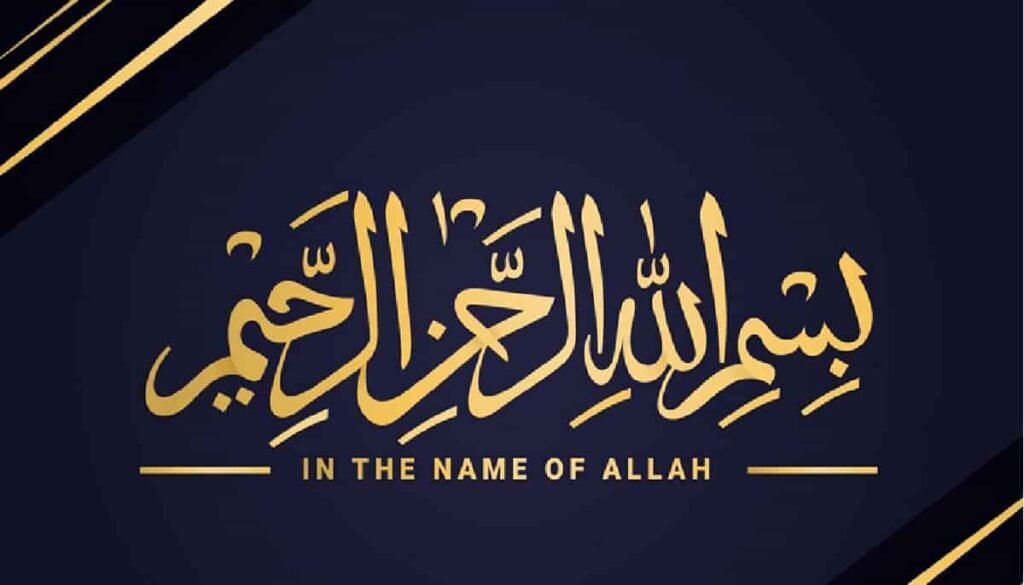
99 Names of Allah. For Muslims around the world, Allah (God) is not a distant, unknowable entity, but a being with whom they can form a profound and intimate connection. This connection is fostered through prayer, reflection, and a deep understanding of His attributes. Central to this understanding are the 99 Names of Allah, known as Asma ul-Husna (أَسْمَاءُ ٱلْحُسْنَىٰ), meaning “The Most Beautiful Names.”
These names are not mere labels; they are powerful descriptions of Allah’s divine qualities, his inherent nature, and his relationship with creation. By reflecting on these names, we gain a deeper insight into Allah’s majesty, beauty, and perfection, fostering a greater appreciation for his existence and a stronger connection to the divine.
In this comprehensive guide, we will explore the significance of Asma ul-Husna, delve into their meaning, and understand how contemplating them can enrich our spiritual lives.
99 Names of Allah
The Significance of Asma ul-Husna:
The Quran and the Sunnah (the teachings and practices of Prophet Muhammad ﷺ) both emphasize the importance of knowing and understanding the 99 Names of Allah. The Quran states:
“And to Allah belong the best names, so invoke Him by them. And leave [the company of] those who practice deviation concerning His names. They will be recompensed for what they have been doing.” (Quran 7:180)
This verse highlights two key points:
- Invocation: We are encouraged to call upon Allah using His beautiful names. This is a form of worship, allowing us to connect with Allah in a meaningful and personal way.
- Caution against Deviation: We are warned against distorting or misinterpreting the meanings of these names, emphasizing the importance of seeking accurate knowledge and understanding.
Furthermore, the Prophet Muhammad ﷺ said:
“Allah has ninety-nine names, one hundred minus one. Whoever memorizes them all will enter Paradise.” (Sahih al-Bukhari)
While interpretations of “memorizing” vary, the consensus is that it involves not just reciting the names but also understanding their meanings, reflecting on their significance, and striving to embody them in our lives.
Understanding the Meaning of Each Name:
It’s crucial to understand that the 99 Names of Allah are derived from the Quran and the Sunnah. They are not simply human inventions. They are carefully chosen words that reveal facets of Allah’s divine nature.
Below is a list of the 99 Names of Allah, along with their transliteration, a common English translation, and a brief explanation:
(Note: Translations can vary slightly depending on the interpretation and the translator’s choice of words. The explanations provided are brief and intended to offer a basic understanding.)
| # | Arabic Name (أَسْمَاءُ ٱلْحُسْنَىٰ) | Transliteration | English Translation | Explanation |
|---|---|---|---|---|
| 1 | ٱللهُ (Allāh) | Allah | God | The supreme name encompassing all divine attributes, signifying the one and only God worthy of worship. |
| 2 | ٱلرَّحْمَـٰنُ (Ar-Raḥmān) | Ar-Rahman | The Most Gracious | Signifying boundless mercy and compassion that encompasses all of creation. Allah’s Rahma (mercy) is given to everyone in this world, regardless of belief. |
| 3 | ٱلرَّحِيمُ (Ar-Raḥīm) | Ar-Rahim | The Most Merciful | Emphasizing Allah’s constant and particular mercy toward believers. This mercy is a specific attribute reserved for those who are faithful and obedient. |
| 4 | ٱلْمَلِكُ (Al-Malik) | Al-Malik | The Sovereign Lord | Denoting Allah’s absolute dominion and ownership over all creation. He is the ultimate ruler and authority. |
| 5 | ٱلْقُدُّوسُ (Al-Quddūs) | Al-Quddus | The Most Holy | Describing Allah’s perfection, purity, and freedom from all imperfections and flaws. He is utterly distinct from creation. |
| 6 | ٱلسَّلَامُ (As-Salām) | As-Salam | The Source of Peace | Signifying Allah’s freedom from all defects and blemishes. He is the source of all peace and security. |
| 7 | ٱلْمُؤْمِنُ (Al-Mu’min) | Al-Mu’min | The Guardian of Faith | Denoting Allah’s trustworthiness and the giver of security and faith. He confirms the truth and protects His believers. |
| 8 | ٱلْمُهَيْمِنُ (Al-Muhaymin) | Al-Muhaymin | The Protector | Signifying Allah’s watchful guardianship and encompassing knowledge of all things. He is the ultimate protector and witness. |
| 9 | ٱلْعَزِيزُ (Al-‘Azīz) | Al-Aziz | The Almighty | Describing Allah’s vastness, immensity, encompassing knowledge and mercy. |
| 10 | ٱلْجَبَّارُ (Al-Jabbār) | Al-Jabbar | The Compeller | Signifying Allah’s power to enforce His will and to repair what is broken. He is the one who mends and restores. |
| 11 | ٱلْمُتَكَبِّرُ (Al-Mutakabbir) | Al-Mutakabbir | The Supreme | Denoting Allah’s supreme grandeur and transcendence above all creation. He is the one who is rightfully proud and majestic. (Note: this concept is different when applied to humans) |
| 12 | ٱلْخَالِقُ (Al-Khāliq) | Al-Khaliq | The Creator | Describing Allah as the originator and maker of everything. He brings things into existence from nothing. |
| 13 | ٱلْبَارِئُ (Al-Bāri’) | Al-Bari’ | The Evolver | Signifying Allah’s ability to shape and fashion creation with perfect precision and harmony. |
| 14 | ٱلْمُصَوِّرُ (Al-Muṣawwir) | Al-Musawwir | The Fashioner | Describing Allah as the giver of forms and shapes to all things. He is the one who designs and gives beauty to creation. |
| 15 | ٱلْغَفَّارُ (Al-Ghaffār) | Al-Ghaffar | The Ever-Forgiving | Signifying Allah’s constant willingness to forgive sins. He is the one who repeatedly pardons and conceals faults. |
| 16 | ٱلْقَهَّارُ (Al-Qahhār) | Al-Qahhar | The Subduer | Denoting Allah’s power to subdue all creation under His will. He is the one who overpowers and dominates. |
| 17 | ٱلْوَهَّابُ (Al-Wahhāb) | Al-Wahhab | The Bestower | Signifying Allah’s boundless generosity and His ability to bestow gifts without expecting anything in return. |
| 18 | ٱلرَّزَّاقُ (Ar-Razzāq) | Ar-Razzaq | The Provider | Describing Allah as the sustainer and provider of all creation. He is the one who provides sustenance and resources for all living beings. |
| 19 | ٱلْفَتَّاحُ (Al-Fattāḥ) | Al-Fattah | The Opener | Signifying Allah’s ability to open doors of opportunity and to grant victory. He is the one who resolves difficulties and brings ease. |
| 20 | ٱلْعَلِيمُ (Al-‘Alīm) | Al-Alim | The All-Knowing | Describing Allah’s perfect and encompassing knowledge of all things, past, present, and future. |
| 21 | ٱلْقَابِضُ (Al-Qābiḍ) | Al-Qabid | The Withholder | Signifying Allah’s ability to restrict or withhold blessings and sustenance. He is the one who contracts or tightens. |
| 22 | ٱلْبَاسِطُ (Al-Bāsiṭ) | Al-Basit | The Expander | Signifying Allah’s ability to expand or increase blessings and sustenance. He is the one who extends or loosens. |
| 23 | ٱلْخَافِضُ (Al-Khāfiḍ) | Al-Khafid | The Abaser | Signifying Allah’s power to humble or degrade those who are arrogant and disobedient. He is the one who lowers or degrades. |
| 24 | ٱلرَّافِعُ (Ar-Rāfi‘) | Ar-Rafi’ | The Exalter | Signifying Allah’s power to elevate or exalt those who are righteous and obedient. He is the one who raises or exalts. |
| 25 | ٱلْمُعِزُّ (Al-Mu‘izz) | Al-Mu’izz | The Giver of Honor | Signifying Allah’s power to bestow honor and dignity upon whomever He wills. |
| 26 | ٱلْمُذِلُّ (Al-Muḏill) | Al-Mudhll | The Humiliator | Signifying Allah’s power to humiliate and disgrace whomever He wills. |
| 27 | ٱلسَّمِيعُ (As-Samī‘) | As-Sami’ | The All-Hearing | Describing Allah’s perfect hearing of all things, even the faintest whispers. |
| 28 | ٱلْبَصِيرُ (Al-Baṣīr) | Al-Basir | The All-Seeing | Describing Allah’s perfect vision of all things, even the most hidden. |
| 29 | ٱلْحَكَمُ (Al-Ḥakam) | Al-Hakam | The Judge | Signifying Allah as the ultimate judge who will justly reward and punish. |
| 30 | ٱلْعَدْلُ (Al-‘Adl) | Al-Adl | The Just | Describing Allah’s perfect justice and fairness in all His dealings. |
| 31 | ٱللَّطِيفُ (Al-Laṭīf) | Al-Latif | The Subtle One | Signifying Allah’s gentleness, kindness, and subtle understanding of all things. He is the one who is kind and gracious. |
| 32 | ٱلْخَبِيرُ (Al-Khabīr) | Al-Khabir | The Well-Aware | Describing Allah’s perfect awareness of all things, both hidden and manifest. |
| 33 | ٱلْحَلِيمُ (Al-Ḥalīm) | Al-Halim | The Forbearing | Signifying Allah’s patience, clemency, and slowness to punish. |
| 34 | ٱلْعَظِيمُ (Al-‘Aẓīm) | Al-Azim | The Magnificent | Describing Allah’s supreme greatness, majesty, and grandeur. |
| 35 | ٱلْغَفُورُ (Al-Ghafūr) | Al-Ghafur | The All-Forgiving | Signifying Allah’s boundless forgiveness and His willingness to pardon sins. |
| 36 | ٱلشَّكُورُ (Ash-Shakūr) | Ash-Shakur | The Appreciative | Signifying Allah’s appreciation of even the smallest good deed and His rewarding it generously. |
| 37 | ٱلْعَلِيُّ (Al-‘Alī) | Al-Aliy | The Most High | Describing Allah’s supreme elevation and transcendence above all creation. |
| 38 | ٱلْكَبِيرُ (Al-Kabīr) | Al-Kabir | The Greatest | Describing Allah’s immense greatness and vastness that surpasses all comprehension. |
| 39 | ٱلْحَفِيظُ (Al-Ḥafīẓ) | Al-Hafiz | The Preserver | Signifying Allah’s protection and preservation of all creation. He is the one who safeguards and maintains. |
| 40 | ٱلْمُقِيتُ (Al-Muqīt) | Al-Muqit | The Sustainer | Signifying Allah’s provision of sustenance and nourishment for all creation. |
| 41 | ٱلْحَسِيبُ (Al-Ḥasīb) | Al-Hasib | The Reckoner | Signifying Allah’s perfect account-keeping and His just reckoning on the Day of Judgment. |
| 42 | ٱلْجَلِيلُ (Al-Jalīl) | Al-Jalil | The Majestic | Describing Allah’s supreme majesty, grandeur, and dignity. |
| 43 | ٱلْكَرِيمُ (Al-Karīm) | Al-Karim | The Generous | Signifying Allah’s boundless generosity, kindness, and noble nature. |
| 44 | ٱلرَّقِيبُ (Ar-Raqīb) | Ar-Raqib | The Watchful | Signifying Allah’s constant watchfulness and awareness of all things. |
| 45 | ٱلْمُجِيبُ (Al-Mujīb) | Al-Mujib | The Responsive | Signifying Allah’s responsiveness to prayers and supplications. |
| 46 | ٱلْوَاسِعُ (Al-Wāsi‘) | Al-Wasi’ | The All-Encompassing | Describing Allah as self-sufficient and independent. He is free from all needs and wants. |
| 47 | ٱلْحَكِيمُ (Al-Ḥakīm) | Al-Hakim | The Wise | Describing Allah’s perfect wisdom in all His actions and decrees. |
| 48 | ٱلْوَدُودُ (Al-Wadūd) | Al-Wadud | The Loving | Signifying Allah’s boundless love for His creation, especially for those who are righteous. |
| 49 | ٱلْمَجِيدُ (Al-Majīd) | Al-Majid | The Glorious | Describing Allah’s supreme glory, honor, and nobility. |
| 50 | ٱلْبَاعِثُ (Al-Bā‘ith) | Al-Ba’ith | The Resurrector | Signifying Allah’s power to resurrect the dead on the Day of Judgment. |
| 51 | ٱلشَّهِيدُ (Ash-Shahīd) | Ash-Shahid | The Witness | Signifying Allah’s perfect witness to all things. He is the ever-present observer. |
| 52 | ٱلْحَقُّ (Al-Ḥaqq) | Al-Haqq | The Truth | Describing Allah as the ultimate and absolute truth. His words and promises are always true. |
| 53 | ٱلْوَكِيلُ (Al-Wakīl) | Al-Wakil | The Trustee | Signifying Allah as the ultimate trustee and advocate. We can rely on Him for all our needs. |
| 54 | ٱلْقَوِيُّ (Al-Qawiyy) | Al-Qawiyy | The All-Strong | Describing Allah’s boundless strength and power. |
| 55 | ٱلْمَتِينُ (Al-Matīn) | Al-Matin | The Firm | Describing Allah’s unwavering steadfastness and strength. |
| 56 | ٱلْوَلِيُّ (Al-Waliyy) | Al-Waliyy | The Protecting Friend | Signifying Allah as the protector and guardian of believers. |
| 57 | ٱلْحَمِيدُ (Al-Ḥamīd) | Al-Hamid | The Praiseworthy | Describing Allah as the one who is worthy of all praise and gratitude. |
| 58 | ٱلْمُحْصِي (Al-Muḥṣī) | Al-Muhsi | The Accounter | Signifying Allah’s perfect counting and recording of all things. |
| 59 | ٱلْمُبْدِئُ (Al-Mubdi’) | Al-Mubdi’ | The Originator | Signifying Allah as the originator and creator of all things from the beginning. |
| 60 | ٱلْمُعِيدُ (Al-Mu‘īd) | Al-Mu’id | The Restorer | Signifying Allah as the one who restores and brings back to life. |
| 61 | ٱلْمُحْيِ (Al-Muḥyī) | Al-Muhyi | The Giver of Life | Signifying Allah as the one who gives life to all things. |
| 62 | ٱلْمُمِيتُ (Al-Mumīt) | Al-Mumit | The Taker of Life | Signifying Allah as the one who takes life. |
| 63 | ٱلْحَيُّ (Al-Ḥayy) | Al-Hayy | The Ever-Living | Describing Allah as the eternally living and self-subsisting. |
| 64 | ٱلْقَيُّومُ (Al-Qayyūm) | Al-Qayyum | The Self-Subsisting | Signifying Allah as the one who sustains all things and exists independently. |
| 65 | ٱلْوَاجِدُ (Al-Wājid) | Al-Wajid | The Finder | Signifying Allah as the one who finds and obtains everything. |
| 66 | ٱلْمَاجِدُ (Al-Mājid) | Al-Majid | The Noble | Describing Allah’s supreme nobility, honor, and dignity. |
| 67 | ٱلْوَاحِدُ (Al-Wāḥid) | Al-Wahid | The One | Describing Allah as the one and only God, unique and without equal. |
| 68 | ٱلْأَحَدُ (Al-Aḥad) | Al-Ahad | The Unique | Emphasizing Allah’s absolute oneness and indivisibility. |
| 69 | ٱلصَّمَدُ (Aṣ-Ṣamad) | As-Samad | The Eternal | Signifying Allah as the one who is independent and self-sufficient. All creatures are dependent on Him. |
| 70 | ٱلْقَادِرُ (Al-Qādir) | Al-Qadir | The Able | Describing Allah’s perfect ability to do all things. |
| 71 | ٱلْمُقْتَدِرُ (Al-Muqtadir) | Al-Muqtadir | The Powerful | Describing Allah’s overwhelming power and dominion. |
| 72 | ٱلْمُقَدِّمُ (Al-Muqaddim) | Al-Muqaddim | The Expediter | Signifying Allah’s power to advance or bring forward whomever He wills. |
| 73 | ٱلْمُؤَخِّرُ (Al-Mu’akhkhir) | Al-Mu’akhkhir | The Delayer | Signifying Allah’s power to delay or postpone whomever He wills. |
| 74 | ٱلْأَوَّلُ (Al-Awwal) | Al-Awwal | The First | Describing Allah as the first, without beginning. |
| 75 | ٱلْآخِرُ (Al-Ākhir) | Al-Akhir | The Last | Describing Allah as the last, without end. |
| 76 | ٱلظَّاهِرُ (Aẓ-Ẓāhir) | Az-Zahir | The Manifest | Signifying Allah’s clear and evident existence and presence. |
| 77 | ٱلْبَاطِنُ (Al-Bāṭin) | Al-Batin | The Hidden | Signifying Allah’s hidden and subtle nature that is beyond human comprehension. |
| 78 | ٱلْوَالِي (Al-Wālī) | Al-Wali | The Governor | Signifying Allah as the governor and controller of all affairs. |
| 79 | ٱلْمُتَعَالِي (Al-Muta‘ālī) | Al-Muta’ali | The Most Exalted | Describing Allah’s supreme exaltation and transcendence above all creation. |
| 80 | ٱلْبَرُّ (Al-Barr) | Al-Barr | The Source of Goodness | Signifying Allah as the source of all goodness, kindness, and righteousness. |
| 81 | ٱلتَّوَّابُ (At-Tawwāb) | At-Tawwab | The Acceptor of Repentance | Signifying Allah’s willingness to accept repentance and forgive sins. |
| 82 | ٱلْمُنْتَقِمُ (Al-Muntaqim) | Al-Muntaqim | The Avenger | Signifying Allah’s justice in taking retribution from those who wrong others and transgress His limits. |
| 83 | ٱلْعَفُوُّ (Al-‘Afuww) | Al-Afuww | The Pardoner | Signifying Allah’s boundless pardon and forgiveness of sins. |
| 84 | ٱلرَّءُوفُ (Ar-Ra’ūf) | Ar-Ra’uf | The Kind | Signifying Allah’s extreme kindness, compassion, and gentleness. |
| 85 | مَالِكُ ٱلْمُلْكُ (Mālik-ul-Mulk) | Malik-ul-Mulk | The Owner of Sovereignty | Signifying Allah’s absolute ownership and control of all dominion. |
| 86 | ذُو ٱلْجَلَالِ وَٱلْإِكْرَامِ (Ḏū-l-Jalāli wa-l-’Ikrām) | Dhu-l-Jalali wal-Ikram | The Lord of Majesty and Generosity | Describing Allah as the possessor of majesty, glory, honor, and generosity. |
| 87 | ٱلْمُقْسِطُ (Al-Muqsiṭ) | Al-Muqsit | The Equitable | Signifying Allah’s perfect justice and fairness in all His dealings. |
| 88 | ٱلْجَامِعُ (Al-Jāmi‘) | Al-Jami’ | The Gatherer | Signifying Allah’s power to gather all of creation on the Day of Judgment. |
| 89 | ٱلْغَنِيُّ (Al-Ghaniyy) | Al-Ghaniyy | The Rich | Describing Allah as the self-sufficient and independent. He is free from all needs and wants. |
| 90 | ٱلْمُغْنِي (Al-Mughnī) | Al-Mughni | The Enricher | Signifying Allah’s power to enrich and provide for whomever He wills. |
| 91 | ٱلْمَانِعُ (Al-Māni‘) | Al-Mani’ | The Preventer | Signifying Allah’s power to prevent harm or evil from befalling His servants. |
| 92 | ٱلضَّارُّ (Aḍ-Ḍārr) | Ad-Darr | The Distresser | Signifying that Allah can bring about harm or difficulty, but always with wisdom and purpose. |
| 93 | ٱلنَّافِعُ (An-Nāfi‘) | An-Nafi’ | The Beneficial | Signifying Allah’s power to bring about benefit and good. |
| 94 | ٱلنُّورُ (An-Nūr) | An-Nur | The Light | Signifying Allah as the source of all light, both physical and spiritual. |
| 95 | ٱلْهَادِي (Al-Hādī) | Al-Hadi | The Guide | Signifying Allah as the guide who leads people to the right path. |
| 96 | ٱلْبَدِيعُ (Al-Badī‘) | Al-Badi’ | The Incomparable | Signifying Allah as the originator of all things in a unique and unprecedented manner. |
| 97 | ٱلْبَاقِي (Al-Bāqī) | Al-Baqi | The Everlasting | Describing Allah as the eternally enduring and everlasting. |
| 98 | ٱلْوَارِثُ (Al-Wārith) | Al-Warith | The Inheritor | Signifying Allah as the ultimate inheritor of all things. Everything ultimately returns to Him. |
| 99 | ٱلرَّشِيدُ (Ar-Rashīd) | Ar-Rashid | The Guide to Rectitude | Signifying Allah as the guide who leads to the right path of understanding and wisdom. |
Integrating Asma ul-Husna into Our Lives:
Knowing the 99 Names of Allah is only the first step. The real benefit lies in integrating this knowledge into our daily lives. Here are some ways to do that:
- Recitation and Reflection: Regularly reciting the 99 Names of Allah, accompanied by sincere reflection on their meanings, can bring immense spiritual benefits.
- Supplication (Dua): Using the names of Allah in our prayers and supplications makes our requests more meaningful and connects us with the divine in a profound way. For example, when seeking forgiveness, we can invoke “Al-Ghafur” (The All-Forgiving). When seeking sustenance, we can invoke “Ar-Razzaq” (The Provider).
- Embodying the Attributes: Strive to embody the qualities reflected in the names of Allah in our own lives, to the best of our abilities. For instance, striving to be merciful and compassionate like Ar-Rahman and Ar-Rahim, just and fair like Al-Adl, and forgiving like Al-Ghafur.
- Contemplation of Creation: Reflecting on the beauty and order of creation and recognizing the signs of Allah’s attributes in the world around us. This can help us appreciate His majesty and power.
- Seeking Knowledge: Continuously seeking knowledge about Allah and His attributes through studying the Quran, the Sunnah, and the works of reputable scholars.
- Remembering Allah in all Circumstances: Remembering Allah and invoking His names in times of joy, sorrow, ease, and difficulty. This strengthens our connection with the divine and helps us navigate life’s challenges with grace and resilience.
Conclusion:

The 99 Names of Allah (Asma ul-Husna) are a treasure trove of divine wisdom and a pathway to a deeper understanding of God. By learning their meanings, reflecting on their significance, and striving to embody their qualities, we can enrich our spiritual lives, strengthen our connection with Allah, and attain a closer relationship with our Creator.
Let us embark on this journey of exploring the divine attributes and striving to live a life that is pleasing to Allah, embodying the beautiful names in our actions and intentions. This journey is a continuous process of learning, reflection, and striving for excellence in our relationship with the Almighty. May Allah guide us all in our pursuit of knowledge and understanding.


